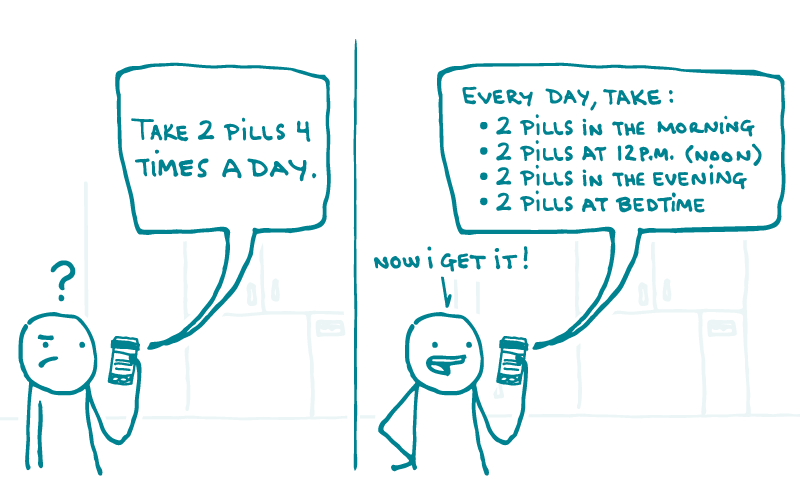
Here at We ❤ Health Literacy Headquarters, we love to keep sentences and paragraphs short and sweet. But what happens when you really need a lot of words to communicate something clearly?
Our advice: if it’s a choice between brevity and clarity, choose clarity every time. Health information can be complicated! And sometimes you just need more words to tell your readers what they need to know.
Let’s look at a couple of examples. Which of these options works best?
- Your out-of-pocket maximum is the most you have to pay for covered health care services in a plan year.
- Your out-of-pocket maximum is the most you have to pay for covered health care services in a plan year. After you spend this amount on deductibles, copayments, and coinsurance for in-network care and services, your health plan pays 100% of the costs of covered benefits.
In this case, longer is definitely better, right? The second sentence (courtesy of HealthCare.gov) gives helpful context for a tricky health insurance-related term.
In general, it’s best to fight the urge to use a more jargony phrase just to lower your word count. Here’s another example:
- You may have swelling at the injection site.
- You may have swelling where you got the shot — usually on your upper arm.
Again, more words — but way clearer.
So remember, dear readers, a higher word count isn’t always the enemy. And you can still look for opportunities to break up longer sentences and “chunk” your content into bulleted lists or short paragraphs.
The bottom line: Sometimes, writing in plain language means using more words — and that’s okay!
Tweet about it: .@CommunicateHlth explains that sometimes clear communication means more words — and it’s okay! https://bit.ly/2KES4zJ #HealthLit
Browse recent posts